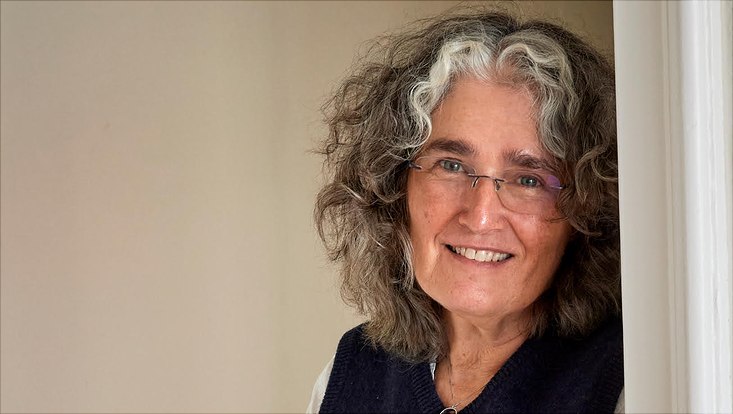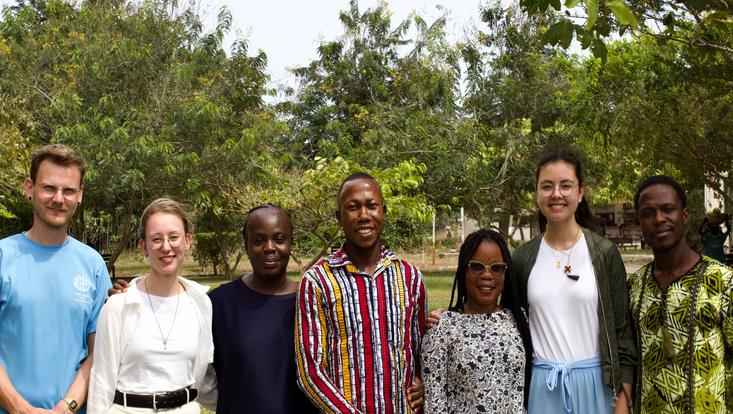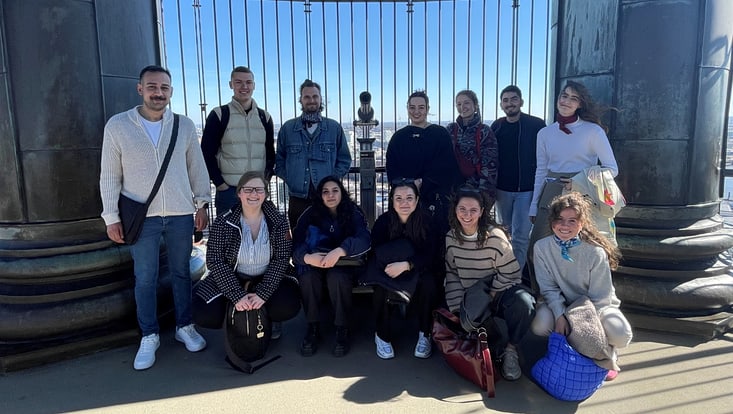"I hope to initiate collaboration."Interview with Prof. Carole Bloch
16. Mai 2022

Foto: Carole Bloch
International Office met with PRAESA Executive Director and Extraordinary Professor in Language Education at the University of the Western Cape Carole Bloch who is a guest at the faculty from April to June 2022.
Carole Bloch is currently on a visit to the Faculty of Education of Universität Hamburg. She is an Extraordinary Professor in Language Education at the Faculty of Education at the University of the Western Cape (UWC) in South Africa. She is also Executive Director of PRAESA (Project for the Study of Alternative Education in South Africa), a non-governmental organization focused on multilingual language and literacy development.
International Office: Carole, why are you here in Hamburg at our faculty?
Carole Bloch: My husband is currently a fellow at the New Institute in Hamburg and I took this as an opportunity to accompany him to the hanseatic city. To be honest, it was a win-win-situation (laughs). I have known Professor Ingrid Gogolin for many years, and she invited me to visit the Faculty of Education during my time in Hamburg. I hope to get to know more people and initiate possible ways of collaboration between your faculty and my colleagues at the University of the Western Cape.
How did you get to know Professor Gogolin?
Ingrid visited Cape Town around 2000 because of her research in the field of multilingualism and language education and I got to know here then. She was also the external examiner for my PhD thesis in 2006 on children’s literacy development in African multilingual settings, at the Carl von Ossietzky University in Oldenburg.
What does your research focus on?
I have been interested in multilingual and literacy education for a very long time, especially focusing on learning in early childhood. One of my current scientific interests is what neuroscience research tells us about literacy learning. Together with George Ellis, I published an article that outlines and discusses an integrative body of neuroscience which contests the reductionist neuroscience research cited to support the argument that explicit decoding necessarily preceeds comprehension in learning to read. Ensuring young children understand what they are reading is increasing as a central global challenge in initial literacy teaching. Our view is that the non-linear contextual nature of the reading process involves an ongoing focus on personal meaning and understanding from the very beginning.
That sounds very fascinating and also kind of trans-sectoral; I wish you good luck whilst paving this kind of new way of connecting research findings. But, coming back to your core topic, if I may call it like that: I am already looking forward to joining the Lecture & Drinks session held by you on June 1 at our faculty where you are going to talk about literacy teaching in multilingual South Africa! This topic is also, if I understand it correctly, your main preoccupation connected with your role as Executive Director of PREASA, right? Could you tell us a bit more about this organization?
With pleasure. PREASA was founded in 1992 by Neville Alexander, a fellow Robben Island prisoner of Nelson Mandela and a South-African pioneer in multilingual education. PRAESA’s work focuses on contributing towards equity in education. In early childhood, this means that all children living in multilingual settings need to experience enriching, motivating opportunities as they learn how to read and write. So we engage in projects to help transform the way adults engage with children in formal and informal early educational settings: They are the role models who young children look up to and emulate, so what they do, and how they do it, is highly significant.
As there is a concentration of know-how around the topic within the research center Literacy in Diversity Settings, I am, as I mentioned earlier, very happy to visit the faculty. We share literacy challenges in the South and the North; I’ve already found it useful to join the Network for Next Generation Literacies and I hope this leads to ongoing collaboration.
I wish you good luck with this enterprise and cross my fingers for a fruitful cooperation between our two institutions. Here comes the last standard question: How do you like living in Hamburg?
I think I have come here during a very good time of the year: I love the freshness of trees and flowers in your spring. I’ve done several walks alongside the Alster canals which are very beautiful. And the location where I live – near the Binnenalster – is, of course, fantastic. I am really enjoying the privilege of being in Hamburg.
Thank you very much for your time, Carole. We wish you a good, healthy and successful further stay in Hamburg.
If you want to find out more about Carole’s work and research, please see here.


